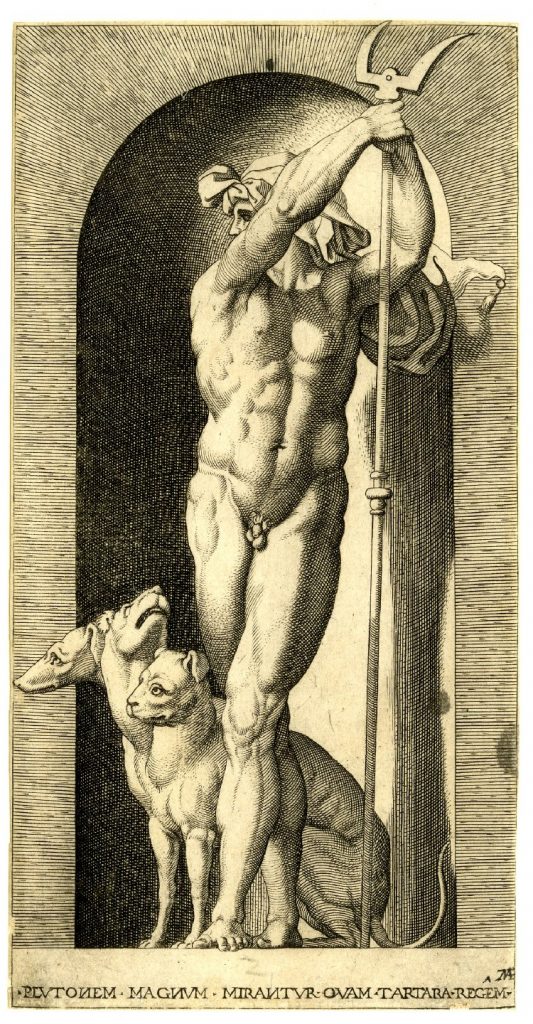More often than not, ancient Greek mythology (religion) served to explain a series of legends. Different from modern religions such as Christianity, Judaism, or Islam, ancient Greek religion was an anthropomorphic polytheism, meaning that ancient Greeks believed in a multitude of individual divine figures that took on human forms and emotions.1 Furthermore, ancient Greek mythology lacked much of the asceticism and mystical enthusiasm that is more commonly seen in modern religions. Most of the highly developed anthropomorphic and comparative rationalism of the ancient Greek religious thought can be accredited to Homer with the aid of his Iliad and Odyssey.2
The people of the ancient Greek civilization were often in a state of weakness under the power of nature; therefore, they relied heavily on the divine individuals of Olympus. Why? They believed that the forces of nature were under the control of their gods. In short, the relationship between humans and divine beings was that of a retribution justice.3 If humans did anything to offend the gods, then those gods would strike back in some sort of fashion to restore justice.4 Therefore, humans were constantly looking to please the gods in fear of their wrath.
Out of the ancient Greek mythology came the god of the dead and the underworld, Hades. Hades had five other siblings: Zeus, Poseidon, Demeter, Hera, and Hestia, and they were all children of Cronus and Rhea.5 After defeating their parents (the Titans), Hades drew lots with Zeus and Poseidon to gain their respective domains. Hades was commonly thought to be a cold god, but he was never considered to be an evil divine figure. Furthermore, it is important to note that his realm, the underworld, should not be associated with the hell of Christianity.6 However, Hades was for the most part feared by all. Another name for the ancient Greek god was Ploutos and later adopted by the Romans as Pluto.7

The god of the underworld was the husband of Persephone (Zeus’s and Demeter’s daughter). Although she was Hades’ wife, she only lived with him during the winter time.8 Persephone was the divine goddess of agriculture and fertility. Therefore, the ancient Greeks accredited the change in nature (winter) to Persephone moving to the underworld. Persephone was unable to stay with Hades at all times due to interference from her mother Demeter. Zeus, however, was okay with the marriage of Hades and Persephone. Therefore, in order to set up the marriage, Zeus had to trick Persephone, so she could be abducted by Hades.9 However, Demeter interfered, and that is why Persephone spends half of the year with Demeter and the other half with Hades.
Furthermore, it is important to note the Greek perspective of the afterlife. Perspectives about the afterlife varied from each other based on their region in Greece as well as their time period in Greek history. The consensus was that the underworld was neither heaven nor hell.10 The sense that exists within Christianity, for example, was not present during the time of the ancient Greeks. Although Tartarus was present as a location within the underworld, the Greeks would not compare it to the equivalent of Christian hell. The way the Greeks saw it, the underworld was a place that everyone ended up after death.11 However, there were a few, including the philosopher Epicurus, that believed that the underworld did not exist at all. He believed that when the body died, the soul died with the body as well.12 A good portion of Greeks refused to believe such a pessimistic perspective of the afterlife. However, even the Greek traditional perspective of the underworld was not as popular despite many Greeks believing in it.
- Funk & Wagnalls New World Encyclopedia, 2016 s.v., “Greek Religion and Mythology.” ↵
- Funk & Wagnalls New World Encyclopedia, 2016 s.v., “Greek Religion and Mythology.” ↵
- Funk & Wagnalls New World Encyclopedia, 2016 s.v., “Greek Religion and Mythology.” ↵
- Funk & Wagnalls New World Encyclopedia, 2016 s.v., “Greek Religion and Mythology.” ↵
- Salem Press Encyclopedia, January, 2015, “Hades (deity),” by Joseph, Michael, DMin. ↵
- Salem Press Encyclopedia, January, 2015, “Hades (deity),” by Joseph, Michael, DMin. ↵
- Salem Press Encyclopedia, January, 2015, “Hades (deity),” by Joseph, Michael, DMin. ↵
- Salem Press Encyclopedia, January, 2015, “Hades (deity),” by Joseph, Michael, DMin. ↵
- Salem Press Encyclopedia, January, 2015, “Hades (deity),” by Joseph, Michael, DMin. ↵
- The Greenhaven Encyclopedia of Ancient Greece, 2007, s.v. “Underworld,” by Robert B. Kebric. ↵
- The Greenhaven Encyclopedia of Ancient Greece, 2007, s.v. “Underworld,” by Robert B. Kebric. ↵
- The Greenhaven Encyclopedia of Ancient Greece, 2007, s.v. “Underworld,” by Robert B. Kebric. ↵



186 comments
Aaron Jaramillo
Great article. You gave great detail about Hades. I was unaware of the Greeks perspective on the afterlife. Interesting that they believed that everyone actually went into the underworld after dying. Before reading your article, I always thought of Hades as being evil and alway associated him with only hell.
Edelia Corona
Very interesting article and it definitely deserves to be the #1 commented article. I was familiar with Hades before reading this but I gained a whole new perspective. I learned about Hades after reading all the Percy Jackson novels and I was under the misconception that Hades was the King of “hell.” Any how, I like how you arranged your thoughts and came to the conclusion that some Greeks did not have a consensus on the afterlife! Good job and I really like your featured image!
Angelica Espinoza
Nice article, I like the fact that you elaborated on the interpretation that ancient greeks had about the underworld. For a long time I believed that the underworld was their version of what I would conceive as hell. I like the extensive vocabulary and enjoyed the fact that the article explains all of the relationships as well as the beliefs that the greeks had based on their actions. I really enjoyed that you actually explain why they actually did those things, allowing us to see their conceptions in comparison to the reality of the situations. Nice job.
Maranda Avina
Awesome article! Well written and lots of good information. I always enjoyed reading about Greek mythology and this article really caught my attention. I never knew Hades married Zeus’s daughter and she is the supposed cause of winter. Keep up the good work!
Betsy Smith
Great job! I’m going to have to brush up on my Greek mythology! It has been a while since I’ve read much about it, but it is always fascinating!
Lance Coon
Jorge (George)– I liked the way you used the ideas of anthropomorphism, forces of nature controlled by deities, and retributive nature as a way to show the power of these beliefs in a society which had no real scientific understanding of the workings of nature and therefore felt itself to be entirely at the mercy of those powers. Good job.
Matt Guthrie
I know what you mean when you call Islam, Judaism, and Christianity “modern”, but the newest of those is almost a millenium and a half old. You should probably also specify that you are comparing with Western religions, as many Eastern religions are still polytheistic.
Is the Caraglio at the top an engraving of a classical sculpture? If not, maybe you could replace a 1526 image with one from the era you’re writing on.
The Greek underworld/Christian hell distinction is important and frequently misunderstood. Good choice in making that one of your foci.
Dave Martin
Informative, nicely researched, skillfully notes divisions within the Greek world along with some perceptive connections to Christianity. Bright young scholar at work here.
Andres Palacios
Very good article and great sources. It was very informative for me since I always thought that the underworld was the equivalent to the hell of christianity, it was just where everyone ended up after death.
Rafael Ortiz Salas
Great Article. I have always been interested in Greek Mythology especially the Greek gods. I never knew that Hades wasn’t always looked as the bad God and that the Greeks had a different view about the underworld. Very good job on explaining details and facts about Hades.